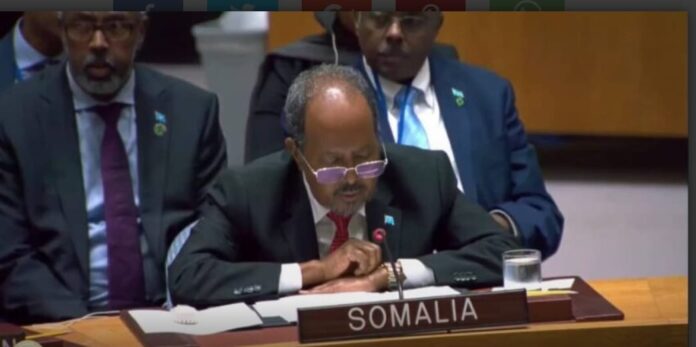Lifting the arms embargo in Somalia is a complex issue with concerns related to security, stability, and the role of armed groups and clan militias. The international community can support Somalia in strengthening its security forces, improving governance systems, addressing poverty and inequality, and engaging diplomatically and politically.
Robust monitoring and compliance mechanisms should be established to prevent arms from falling into the wrong hands. Regional actors like the AU and IGAD can also play a crucial role in supporting Somalia.
It is important to approach the lifting of the arms embargo in a cautious manner, taking into account the potential risks and challenges related to the misuse and proliferation of weapons.
Any decision regarding the embargo should be based on a thorough evaluation of the security situation in Somalia and should involve consultation with the Somali government, regional partners, and other stakeholders.
It is worth noting that the UN, IMF, and World Bank have been criticized for their involvement in conflict-affected countries such as Somalia. However, it is important to respond to these allegations with a factual and nuanced understanding of the situation.
1. The UN deploys peacekeeping missions to conflict zones around the world, including countries like Syria, Afghanistan, and Somalia. While these missions have faced challenges and criticisms, they are primarily aimed at promoting peace, stability, and the protection of civilians. The UN works in collaboration with member states and regional organizations to support peace processes, prevent conflicts, and facilitate humanitarian aid.
2. The IMF and World Bank provide financial and technical assistance to help countries achieve economic development, poverty reduction, and sustainable growth.
While there have been instances where conditionalities attached to loans or assistance have been criticized, these institutions play an important role in supporting countries in achieving their development goals. They also promote good governance, transparency, and accountability in financial and economic management.
3. The UN and various humanitarian organizations provide aid to countries affected by crises and conflicts, such as Syria, Afghanistan, and Somalia. Humanitarian aid focuses on saving lives, meeting basic needs, and protecting vulnerable populations. These organizations work independently from political interests and prioritize the principles of impartiality, neutrality, and humanity.
4. The UN has a primary responsibility to protect and promote human rights globally. The Office of the High Commissioner for Human Rights and relevant UN bodies monitor and report human rights violations in conflict zones, engage in advocacy, and work towards accountability for perpetrators. They provide technical assistance to governments with a focus on strengthening human rights institutions and promoting justice and the rule of law.
It is crucial to recognize and respond to legitimate concerns and criticisms, but it is also critical to acknowledge the positive impact these organizations have made in addressing conflicts, promoting development, delivering humanitarian aid, and protecting human rights in Somalia. The work of these institutions takes place in challenging environments, and continuous efforts are being made to improve their approaches and ensure accountability.
In essence, if the Somali government can effectively fulfil its role by protecting and providing services to its people and meeting the responsibilities of responsible governments, there may be a case to request the lifting of the arms embargo.
In conclusion, the lifting of the arms embargo in Somalia necessitates a cautious approach, but with the international community’s support, Somalia can strengthen its security forces, enhance governance systems, combat poverty, and engage diplomatically and politically with regional partners.
By receiving such comprehensive assistance, Somalia can significantly improve its security, stability, and overall development. The end.
Mohamed Mohamoud Adde is an academic and a political Analyst specialising in offering expert analysis, insight and recommendations on Political developments.
(His goal is to aid stakeholders in making informed decisions and comprehending the complex dynamics of political systems.)


